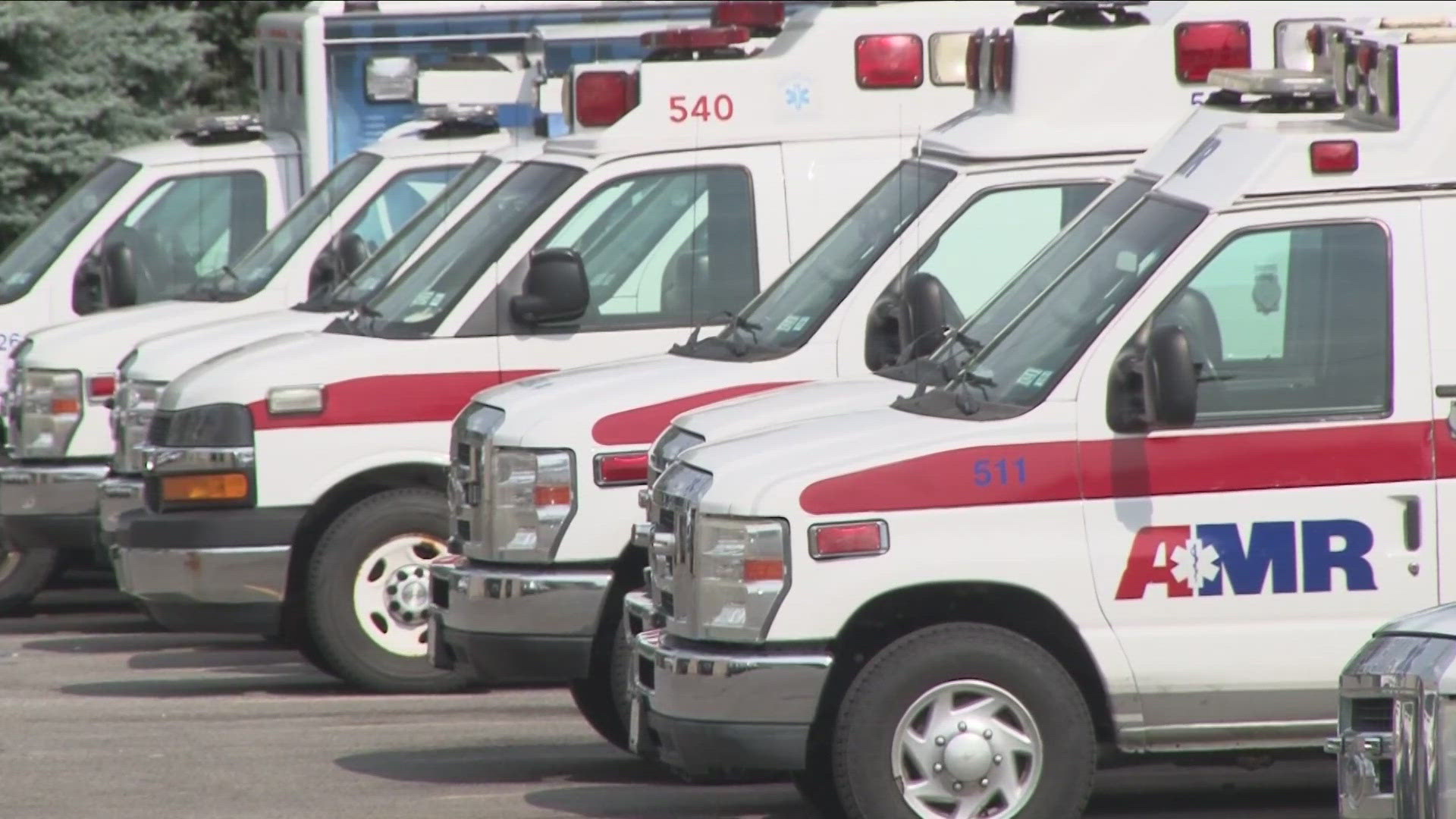BUFFALO, N.Y. — Before adjourning for its August recess, the Buffalo Common Council passed a resolution to study the feasibility of establishing a city-operated ambulance service.
The council gave itself 180 days to conduct that study.
One of the main reasons for the somewhat urgent analysis of AMR's service to the Queen City is repeated complaints from constituents about a perceived delay in emergency response.
North District Councilman Joe Golombek Jr. said he had reports that it took AMR five hours to respond to a call in his district. Other councilmembers described similar concerns.
AMR says they will attend a future council committee meeting in September to answer any questions lawmakers may have. Many councilmembers have expressed support for establishing a city-operated system, namely over the response time issue.
But is that the key metric the city should be focused on?
"It is more complicated than that," Gregg Lord said. "Response times are just one facet of a well run EMS system that you should look at."
Lord has been an EMT for 40-plus years and has helped several municipalities with establishing their own EMS service as a consultant.
Lord says that at least on a nationwide level, 3% of EMS calls are critical in nature.
"We're talking about a very narrow set of calls that you're basing your entire system on," Lord said.
There are all sorts of hidden costs to a government-operated EMS system, according to Lord.
"The cost of ongoing training, running an ambulance service and providing paramedic level care to a community is the practice of medicine outside a hospital, which means that all those providers need to get ongoing education and training to keep up with the evolution of medicine, just like a physician would," Lord said.
Other hidden costs include the purchase of an Ambulance fleet, Medicare reimbursements, medication, liability insurance, potential litigation, and so on.
"Paramedics provide a large number of medications in the pre-hospital care environment, most of which are not reimbursable under medical billing, which means that's an out of the pocket expense that you may not factor in to your calculations," Lord said.
Lord is not saying that Buffalo should or shouldn't create its own service, only that response time is not the key metric lawmakers should focus on.
"They need to look at the data, OK, and understand that when an ambulance is dispatched to a call, is it being dispatched to a call that we would consider to be minor or low acuity?" Lord said. "If it is and the ambulance doesn't get there for 12 minutes, did that meet the patient's needs?"
Lord also points out that fire departments are often responding to EMS situations before an ambulance crew from AMR arrives, and more often than not emergency care is already being provided by the department.
"You've got to understand your data first," Lord said.
The Common Council returns from its recess at the beginning of September.

